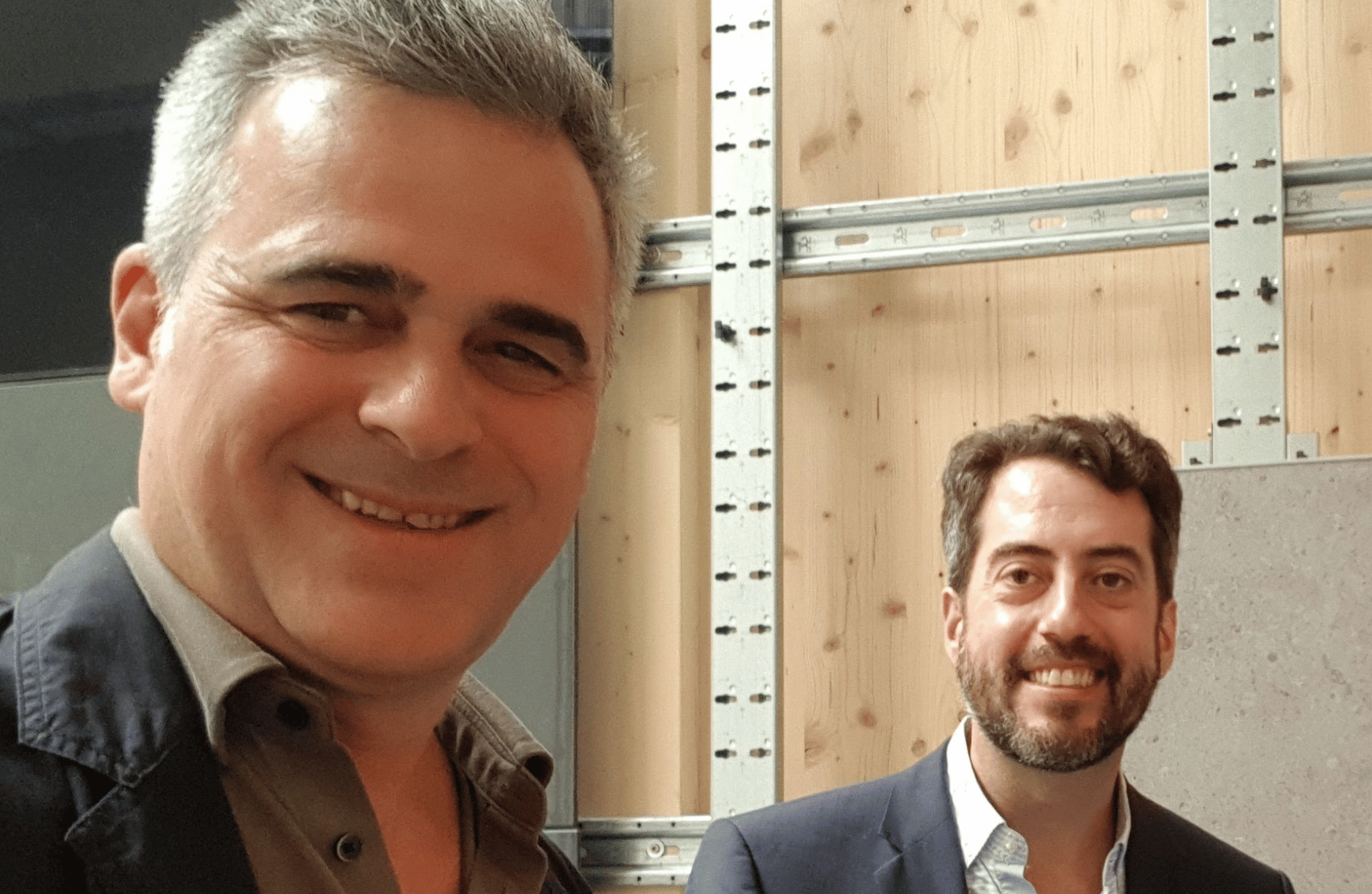Building To A Better Future – Franco Vietti And Furio Barzon, Co-Founders Of ZEB Technologies

This Earth Day, we are exploring the start-ups leading the charge in tackling some of the world’s most pressing climate challenges, and the founders behind them…
Here we speak to Franco Vietti and Furio Barzon, the duo behind ZEB Technologies, which looks at ways to reduce the carbon footprint of growing towns and cities. Franco and Furio found support through the G-Accelerator competition at GBSB Global Business School in Barcelona, which provided mentorship, infrastructure facilities and funding support.
What specific environmental problems is your company addressing, and how do you plan to make a difference in these areas?
McKinsey estimated that buildings are responsible for 50% of CO2 emissions, which means the construction industry has a big responsibility for climate change, and lots of buildings need a deep energy retrofit to get rid of those emissions.
For example, there are at least five million dwellings to renovate only in Spain, where we are now focusing how activities; if one does the math is one dwelling every three minutes from now to 2050 night or day.
Be aware: industrialising this process is the only solution that can scale in terms of rapidity and affordability, to make European goals doable at the required pace. This is the reason we have created ZEB Technologies.
What inspired you to start a company focused on environmental sustainability, and how did you get started?
The European Union signed strict global agreements to contribute against climate change. The European Green Deal established a bold path toward an Emission cut to reach zero GHG (Green House Gases) by 2050, with an intermediate milestone of -55% CO2 in 2030.
For this reason, a group of us at MBA Esade have put together an innovative product to retrofit the envelope of the buildings with new insulation coating and new windows produced offsite with industrial precision. The building envelope alone can reduce energy needs by 70% and enable electrical heating pump systems that make the building 100% carbon neutral.
How did you experience at business school help you launched and run this company?
ZEB’s market is new and we are connected with similar pioneer initiatives in The Netherlands, Germany, and Northern European Countries. We have a focus on Spain right now, because, we have found locally many energy incentive programs, manufacturing facilities (like our industrial partner Arquima), ESCOs energy services, University research, and incubators -we recently won GBSB Global Business School’s G-Accelerator 2023-, which altogether defines a local business cluster we have not seen elsewhere.
Particularly, the G-Accelerator program at GBSB Global Business School in Barcelona helped us as a connector to Catalunya’s opportunities; thanks to Accelerator we have been able to have an idea of the articulated business ecosystem in Spain and to be introduced to key stakeholders.
What makes your company’s approach to environmental sustainability unique or different from other solutions out there?
ZEB solution combines digitalisation and industrialisation, BIM digital twins, and prefabrication.
We provide a turnkey b-to-b service to construction companies and energy service companies: we start with a digital laser scan to precisely control offsite production in our manufacturing partners’ factories, then we install the prefabricated panels without the use of scaffolding, 75% quicker than traditional methods.
Governments need to decarbonise European building stocks to match Climate Neutral Achievement goals. In this case, the possibility of offering a decarbonising building system that can scale faster than the traditional construction industry is a winning point in our opinion.
Traditional companies have many limitations on this front; 1) low-mid capacity to scale, 2) difficulties and high cost to perform retrofitting services to high-rise buildings, 3) increased cost of material and labor force onsite 4) large dependence on scaffolding 5) necessity of a high-intensive skilled labor force.
What are some of the long-term goals you have for your company, and how do you plan to achieve them?
Our focus now is on collecting and delivering early European pilot cases that will bring profit from the beginning and show how beneficial could be our approach for the EU goals on climate change.
Also, the European market of retrofit is huge, estimated at 112 million dwellings, that is € 3,360 billion at an average cost of € 30,000 per renovation. We have a business model for ZEB Technologies that predicts exponential growth and financial self-sufficiency from year one.
To launch the business properly ZEB business is scouting for investors to help to improve our software platform and perform some additional research, patents, and validations of the system. We are currently open to a pre-seed investment of € 500,000 in the change of equity with an expected exit rate of five times that in four years.
What advice would you give to other entrepreneurs who are interested in starting a company focused on environmental sustainability?
We have five simple suggestions;
- Connect environmental benefits with saving or monetisation for your client
- Be at least a little profitable since the very beginning
- Engage with national stakeholders through accelerator and incubator programs
- Be part of University research initiatives playing the role of the SME
- Be personally prepared for a long journey with highs and lows, and to give up or exit if the case

This was a good read.
This is what I think of it
Great to see ZEB Technologies tackling the pressing climate challenges with their innovative turnkey approach to reduce carbon footprint in buildings. Their focus on providing a unique solution combining digitalisation and industrialisation along with prefabrication is truly commendable.
Ely